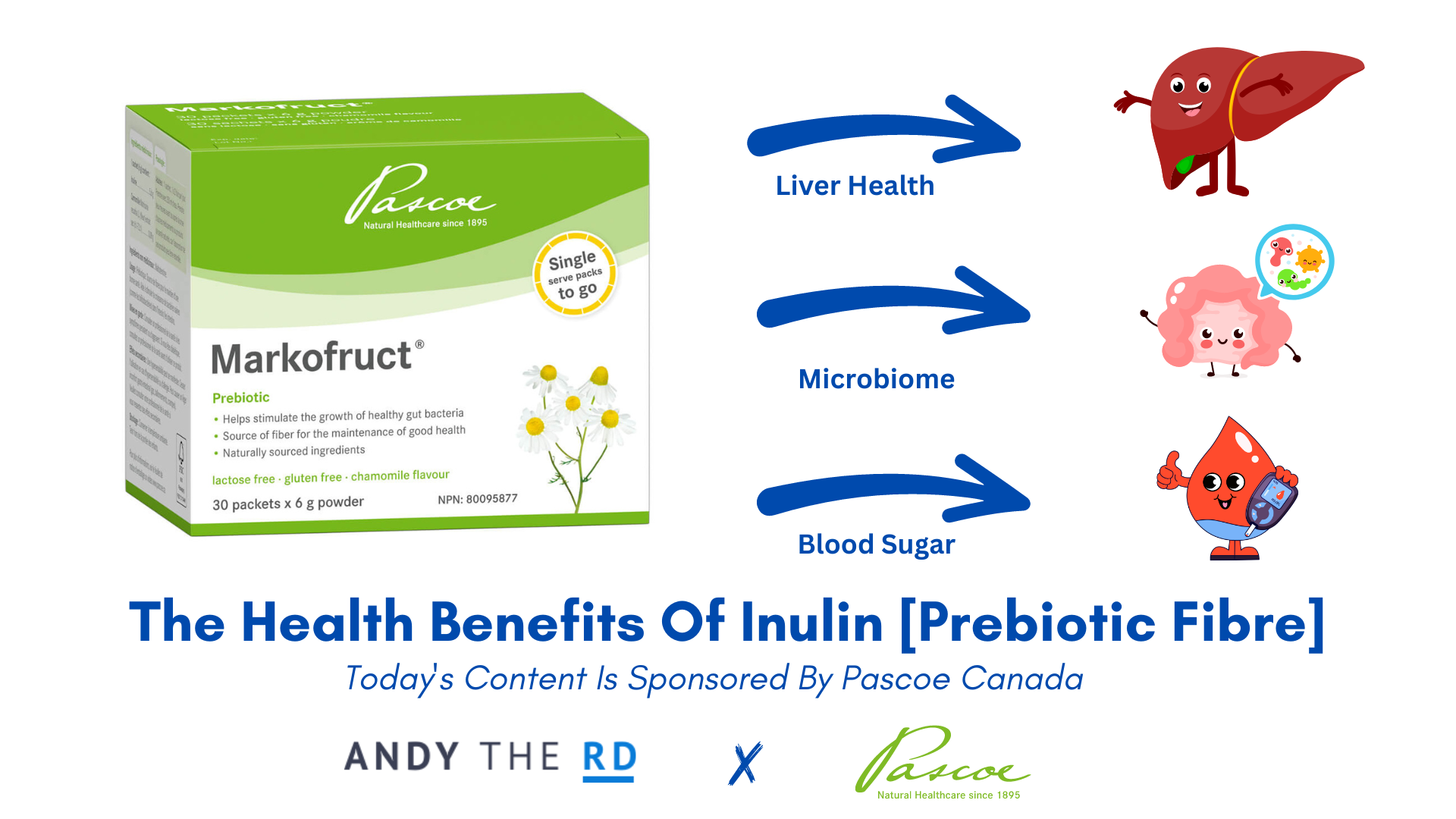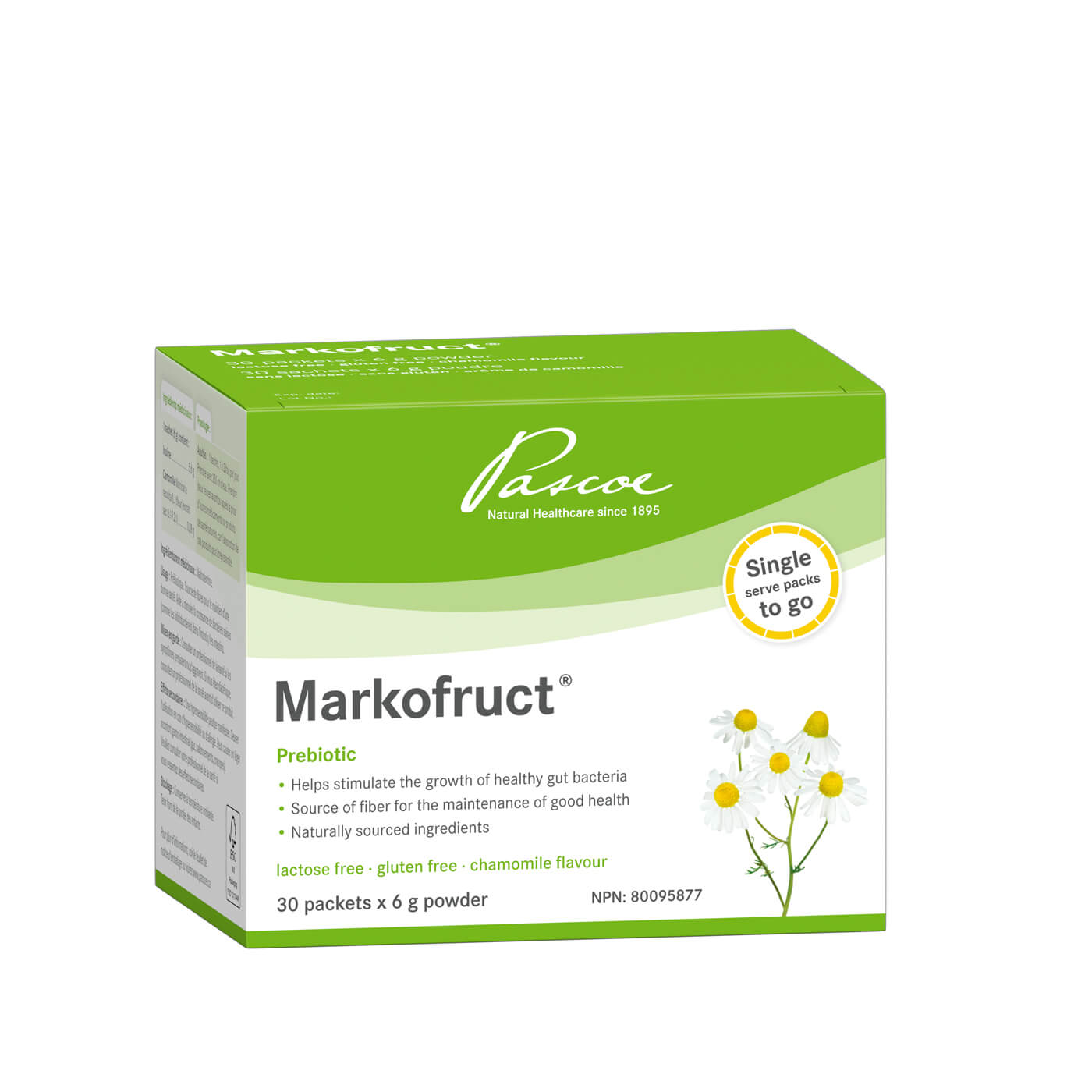The nutrition nerd inside me can hardly wait to speak with you guys today all about the evidence-based health benefits of inulin, a unique type of fibre known as a prebiotic.
Prebiotics act as “food” for our healthy gut bacteria and stimulate their growth, contributing to an overall enhancement in the microbiome which in turn confers a number of health benefits for specific conditions and overall well-being.
In today’s post, prepared in collaboration with supplement company Pascoe Canada, I’ll be exploring the different contexts in which inulin supplementation has been demonstrated to meaningfully improve human health.
Let’s get to the good stuff!
Inulin, Your Diet & Your Microbiome
Foods that naturally contain meaningful amounts of inulin include bananas, asparagus, artichoke, barley and rye with chicory & dandelion root being exceptionally high sources.
Those who do not enjoy or regularly consume these foods are not likely accessing much inulin from their diet, which may be problematic since there is ample scientific evidence out there to demonstrate that boosting inulin intake via diet or supplemental means can lead to meaningful positive changes to the gut microbiome.
A 2019 study out of the American Journal Of Clinical Nutrition found that an inulin-focused diet providing 15 grams per day led to an increase in “healthy” Bifidobacterium bacteria and improved the overall satiety of study participants.
It isn’t easy to eat a diet containing 15 grams of inulin per day, however, given that the average American diet in the 90s contained about 2.5 grams of this prebiotic fibre daily.
When we look at supplemental inulin, systematic review and meta-analysis data have demonstrated that inulin in doses at a minimum of 5 grams per day consistently increase healthy Bifidobacterium.
One of the characteristics that makes Bifidobacterium so good for us is that they contribute to creating compounds known as SCFAs (short chain fatty acids).
SCFAs contribute positively to human health by:
- Improving appetite and blood sugar regulation
- Strengthening the immune response*
- Reducing the presence of bad bacteria
- Improving nutrient absorption (calcium,magnesium)
- Improving gut health and gut functionality
- Improved satiety
It is for this reason, among others, that adequate and diverse amounts of Bifidobacterium are considered fundamental to optimal human health, which is especially true in people living with various health conditions in which their gut microbiome might be compromised.
Let’s explore what those might be.
Prebiotics & Pre/Type-2 Diabetes
The human gut microbiome plays an important role in blood sugar regulation and it has been well documented that people living with pre or type 2 diabetes may be more likely to have imbalances between their good and bad gut bacteria levels.
Inulin supplementation in the 10-15 gram per day range over a multi-month period has been demonstrated to improve relevant outcomes in both pre and type-2 diabetes like insulin resistance, A1C and fasting blood sugar levels.
Inulin also has the potential to improve blood fat indicators like cholesterol and trigylcerides, both of which are relevant to those with diabetes as they further increase cardiovascular risk.
They are also relevant to another common condition, fatty liver disease.
Prebiotics & Fatty Liver
Having recently published a book on Non Alcoholic Fatty Liver Disease [NAFLD], I am intimately aware of the fact that there is a strong connection between the gut microbiome and good liver health.
Although probiotic supplementation has garnered more attention, there is good evidence to suggest that prebiotic supplementation alone or in combination with probiotics can contribute meaningfully to reducing insulin resistance, which is a common feature of fatty liver disease.
Additional evidence exists to suggest that 15 grams of inulin per day over a 3+ month period may also reduce liver enzyme levels.
Markofruct – Pascoe’s Inulin Supplement
It seems clear to me, based on the available evidence, that the presence of inulin in the right amounts for the right person can meaningfully contribute to improved health.
Pascoe’s inulin supplement, Markofruct, is sold in powdered form in combination with chamomile so that it may be served and enjoyed in tea form – making it a unique product in this space.
Each serving of Markofruct contains 5.6 grams of inulin which makes it highly adaptable to the daily dosage ranges that are most frequently studied ( 5-15 grams per day).
As a general note, it is advisable to ease into fibre supplementation as too much, too soon can cause digestive distress in some people – while others may who are very sensitive to certain types of fibre will need to be additionally mindful.
Product Features
- Paired with chamomile dry extract to drink like tea ( 250 ml water per 1 packet)
- 30 packets total per package, each with 5.6 grams of inulin
In partnering with Pascoe for today’s Passionflower content I’ve also been provided a voucher code – ANDY10 – which will offer you 10% off your purchases from Pascoe.ca.
Until next time,
Andy De Santis RD MPH




